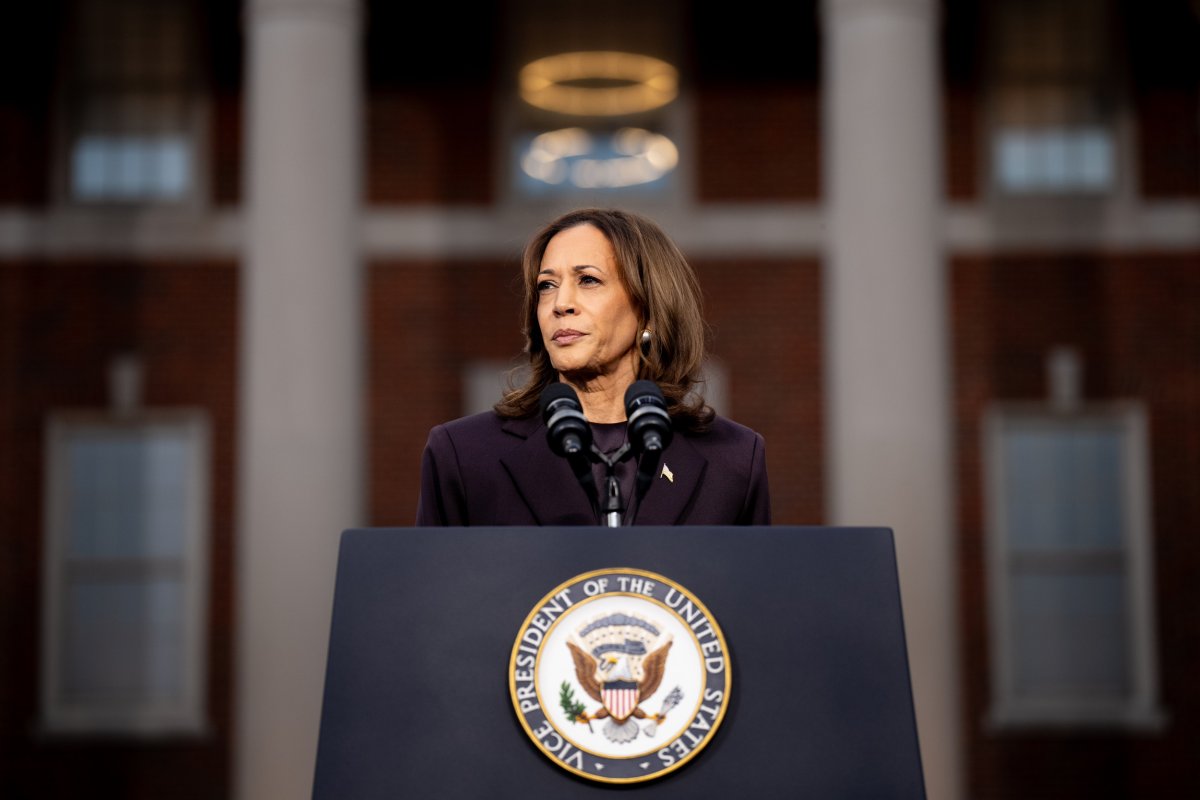Democrats across America are grieving the loss of the 2024 election, after Vice President Kamala Harris conceded to President-elect Donald Trump.
On the latest episode of the podcast Pod Save America, hosts Jon Favreau, Tommy Vietor, Dan Pfeiffer and Jon Lovett, who all worked in the White House under former President Barack Obama, discussed the result of the election, and sought to unpick the factors that contributed to Harris' loss.
"A majority of the country that includes all ages, races, genders, religions and political beliefs, chose four more years of Donald Trump. Either because they like him, because they like his agenda or they don't see him and his agenda as enough of a risk. Or they voted for him based on bad or incomplete information," Favreau said.
"Or they hated Democrats," Vietor responded, before they discussed the key reasons behind the election results.

President Joe Biden Should Not Have Run
President Joe Biden originally sought reelection, until a poor debate performance and concerns about his age ultimately led to his dropping out in July, leading to Harris becoming the nominee and having just over 100 days to campaign.
"It was a mistake for Joe Biden to run for re-election," Vietor said.
"What she was being asked to do was virtually impossible," Lovett added.
Dan Pfieffer stated earlier in the episode that: "The incumbent president has an approval rating of about 40, or 41 percent."
Vietor added: "The White House took the wrong lessons from the midterms in 2022. They didn't listen to obvious voter concerns about Joe Biden's age and anger at the economy."
The Economy
It was clear among the podcast hosts that the economy was a key factor.
"Most people, at least according to the exit poll and almost every other poll we've seen in the last couple of years, are saying, 'I've faced financial hardship because of inflation," Favreau said.
"Three-quarters of voters think the country is on the wrong track, two-thirds are unhappy with the economy. In the exit polling, 45 percent of voters said that their families' financial situation was worse than it was four years ago," Pfeiffer said.
"This was an economic problem, and people blamed the top of the ticket for bad economic conditions," Favreau said.
The Shifting Identity of the Democratic Party
The four men discussed the identity of the Democratic Party, and how it relates to voters as a factor that also influenced the election outcome.
"Our party is now the party of an educated, cosmopolitan minority," Lovett said. Vietor added: "My primary concern is how we are able to take back the mantle of being the party for the working class. Because I'm worried that we've lost it."
Favreau spoke about how the Democrats related to people's identities, and the influence of this on politics. "People's racial, ethnic, gender identity are not the most salient factors in their politics."
"We as a party need to stop treating them that way. This party cannot be the sum of its identities and interest groups, there has to be a bigger message about improving people's lives," he said.
"The idea for a while that Latinos only care about immigration, Black voters only care about criminal justice reform or women only care about reproductive freedom, it's patronizing and it's just wrong. We've got to have a message that reaches everyone, that everyone can see themselves in," Favreau said.
Foreign Policy
Vietor highlighted the influence of foreign policy on the election result. Conflict and rising tensions in the Middle East and the ongoing war in Ukraine were factors for many voters in the election.
"We have to get back to being the anti-war party again," he said. "Four percent of voters in exit polls said foreign policy made their decision."
Vietor said: "People were offended not just by the war in Gaza, but concerned about the amount of money the U.S. is spending on weapons for Ukraine, and we need to either think about a new way to talk about why that's important and why we're doing it or refocus our foreign policy priorities."
"You heard a lot of people say Donald Trump is going to be the guy who keeps us out of World War III," he said, adding: "That is the opposite of the conversation in 2016."
The Establishment
"Trump was able to take the mantle of the anti-establishment candidate at a time when voters were really, really mad," Vietor said, adding that people's anger was enough to justify "taking the chance" of a second Trump term.
Vietor added that the anti-establishment sentiment saw voters who hated Washington look to Trump as he "seems like the one who's going to burn it down."
"If we are always in the position of defending Democratic institutions that most of the people in the country do not think are working for them, then we're gonna be the defenders of a broken system," Favreau said.
Pfieffer said that the Democrats: "Have to become a party that wants to reform democracy."
Newsweek reached out to the Harris campaign outside of normal working hours via email for comment.
Do you have a story we should be covering? Do you have any questions about this story? Contact LiveNews@newsweek.com.






.png)













 English (US) ·
English (US) ·